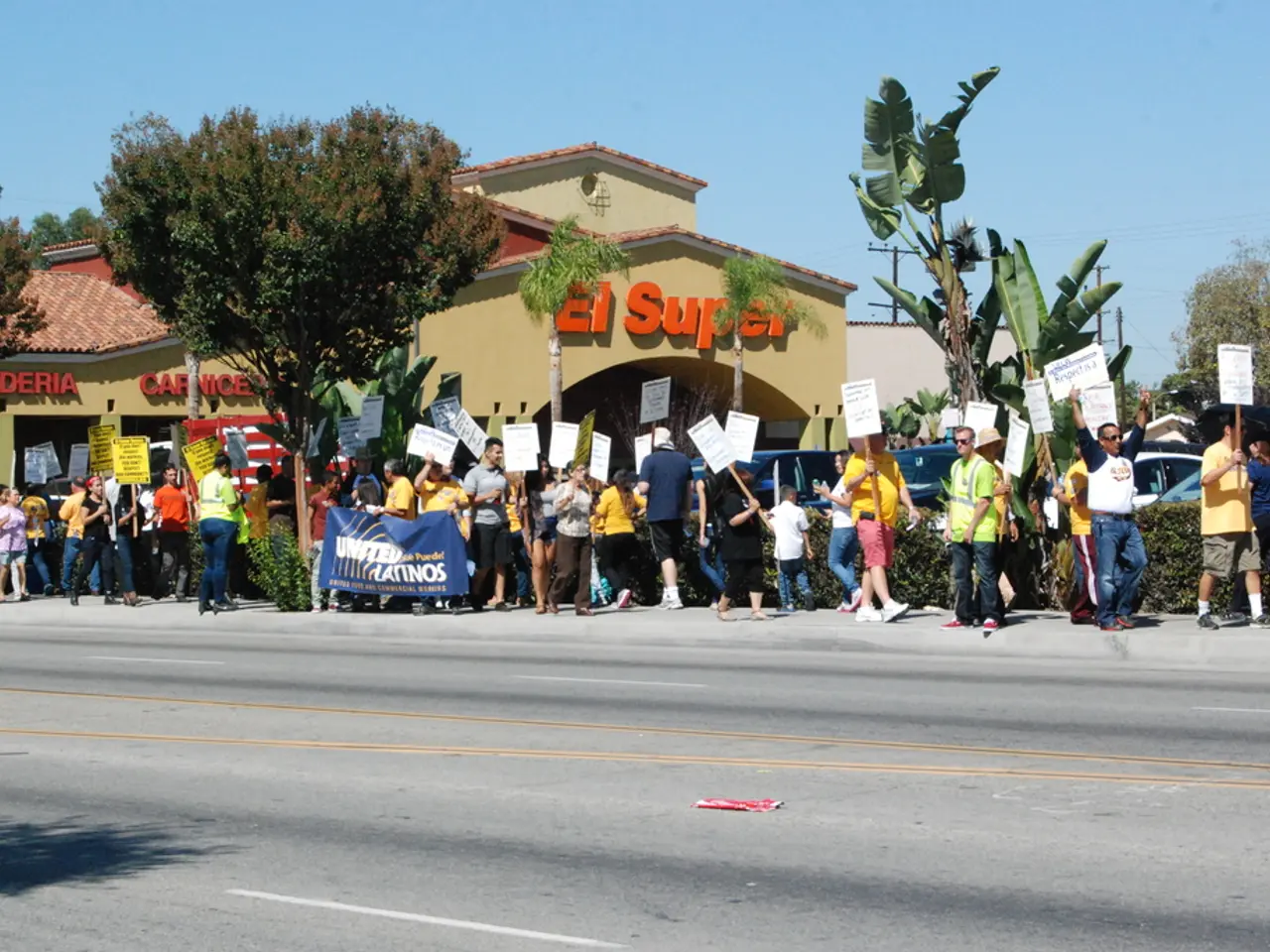Powerful Businesswoman's Downfall: Lessons from Her Fallen Empire. Insights Gleaned.
The "girl boss" movement, an iconic symbol of female empowerment that emerged in the early 2010s, has undergone a significant transformation in recent years, particularly on social media platforms like TikTok.
First coined by Sophia Amoruso in her 2014 book #Girlboss, the term represented a confident, ambitious, and capable woman breaking through the "glass ceiling" in corporate or entrepreneurial ventures. It was a testament to female empowerment within a capitalist framework, emphasizing individual hustle and career achievement.
The "girl boss" gained traction during the third wave of feminism, aligning with the focus on individual empowerment and career success as markers of gender equality, especially within business contexts. The woman labelled as a "girl boss" defined her worth through promotions, paychecks, and personal milestones.
Initially, the movement inspired many women to pursue leadership roles and entrepreneurship, contributing to shifting gender dynamics in the workplace. It spotlighted women’s ambition and helped normalize the idea of women as autonomous agents in traditionally male-dominated fields. However, it also reinforced a narrow definition of success tied primarily to career advancement and economic independence.
Criticism of the "girl boss" label soon followed, with concerns over pressure to conform, capitalist framing, exclusion, and neglect of balance. The movement enforced a specific and sometimes unrealistic standard of success, pressuring women to prioritize career over other life aspects like well-being or family. It was also criticized for commodifying feminism and focusing on individual achievement within corporate capitalism rather than structural change or broader feminist goals.
More recently, especially through platforms like TikTok, the "girl boss" archetype has been redefined and often subverted. A growing cohort of creators challenges the relentless "girl boss" grind culture, promoting what is called the "power pause" — a conscious step back from the hustle to focus on holistic success, encompassing self-care, alternative priorities, and redefining ambition on personal terms.
This redefinition emphasizes self-agency and reinvention, as seen in stories of women leaving high-powered jobs by choice to pursue different paths like caregiving or creative businesses, embodying a broader and more inclusive understanding of empowerment. The movement’s online evolution illustrates a shift from performance-driven feminism to more nuanced conversations about balance, mental health, and personal fulfillment beyond capitalist definitions of success.
In summary, the "girl boss" movement started as a positive symbol of female empowerment through career success but drew criticism for narrow, capitalist-driven ideals. TikTok and other social media have since reimagined it, promoting a more diverse and holistic view of ambition, well-being, and identity that challenges the original "grind" culture.
- On TikTok, the "girl boss" archetype has been subverted, with creators promoting the idea of the "power pause," highlighting self-care, personal priorities, and a redefinition of ambition that doesn't solely rely on career accomplishments.
- As more stories emerge of women leaving high-powered jobs to pursue creative businesses or caregiving, the "girl boss" movement on social media platforms like TikTok is shifting towards a broader and more inclusive understanding of empowerment, moving away from the original performance-driven feminism.
- Ira, interested in fashion-and-beauty, lifestyle, entertainment, pop-culture, and social media, shares her thoughts on the evolution of the "girl boss" movement, pointing out how it has changed from being closely tied to economic success to embracing a more holistic approach that includes self-care and personal fulfillment.







